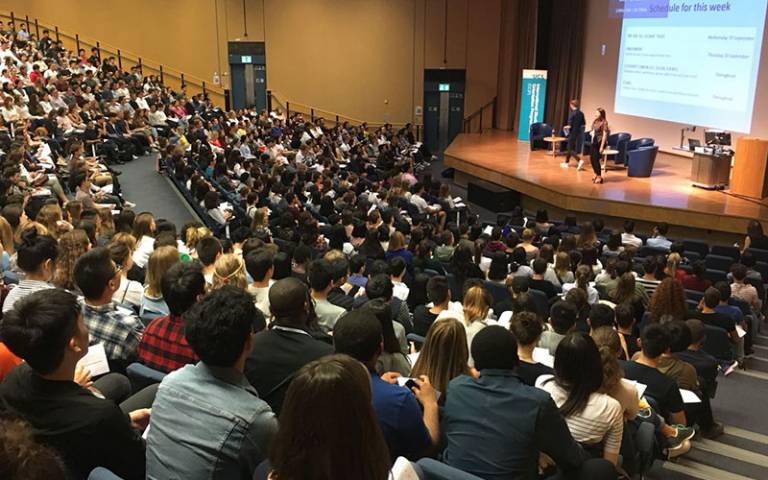Teaching and learning priorities for year ahead set out by Vice-Provost
25 September 2018
Assessment and feedback and academic support remain the focus for education improvement.

Professor Anthony Smith, Vice Provost (Education and Student Affairs) has written to teaching leads across UCL to outline the education priorities for the year ahead.
The focus continues to be improving assessment and feedback and personalised support.
Assessment and feedback
- The Academic Model Project to fix Portico has gathered valuable data about how and how much we assess our students and the Arena Centre will continue to help departments to explore diversifying assessment and reviewing it holistically at programme level.
- The Arena Centre will also continue to develop training and resources, to improve the assessment literacy of our students and to build the capacity of staff to give useful and timely feedback, offering bespoke training for departments.
Read more about our our priorities and progress in Improving assessment and feedback: objective three of the Education Strategy
Personalising student support
- We want to make it easier for students to make good choices as they progress through their time at UCL. Module registration is already seeing improvements as we fix Portico through the Academic Model Project. Sustained work by departments over the last year to provide accurate data is already bearing fruit. For example, 9,000 students who have no optional or elective modules will not have to complete module registration process at start of session. And we aim to produce a comprehensive digital catalogue of all UCL modules in the Spring.
- From early 2019 twelve departments will be piloting a new tool to help you manage your conversations with students and give them appropriate support: the student success platform will bring together details of each student’s academic progress, adjustments, extenuating circumstances with their health and wellbeing casework.
- To make sure that all students, regardless of background, can participate fully and achieve good degrees at equal rates, we have produced a tool, the inclusive curriculum healthcheck, that helps departments embed inclusivity in all aspects of the academic cycle.
Read more about our our priorities and progress in Personalising student support: objective one of the Education Strategy
Professor Smith acknowledged the small improvement in UCL’s National Student Survey performance, where rates of overall satisfaction at UCL increased by 2% to 80%, saying:
"These improvements don’t happen by magic. They are down to hard work and innovation and the willingness of colleagues to talk to students about how they feel, to challenge their own way of working and to seek out and share good practice."
 Close
Close

